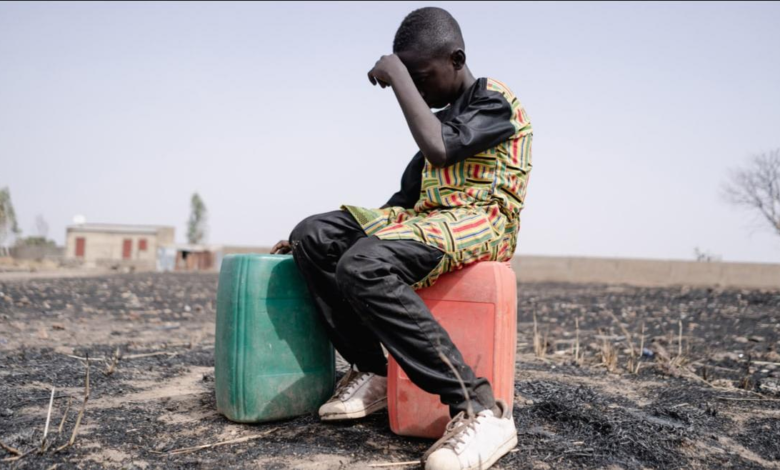Vulnerable Communities More At Risk Of Threatening Heat Waves – Report
The UN OCHA and IFRC noted that humanitarian actors are focusing more on climate-related shocks such as storms, droughts and floods, neglecting the threats of heatwaves that are becoming responsible for an increasing number of deaths.

Vulnerable communities are at risk of being challenged with the most severe impacts of climate change as extreme heat waves are becoming deadlier with the increment of temperature rise, the Office for the Coordination of Humanitarian Affairs (UN OCHA) and the International Federation for the Red Cross (IFRC) have revealed.
According to an analysis published by the charity organisations, heat waves prey on inequality and its impacts fall disproportionately on people who bear the least responsibility for greenhouse gas emissions.
The report noted that humanitarian actors are focusing more on climate-related shocks such as storms, droughts and floods, neglecting the threats of heatwaves that are becoming responsible for an increasing number of deaths, especially in West and Central Africa where heatwaves tracking has been relatively poor yet devastating.
The IFRC has recorded 38 heatwaves between 2010 and 2019 which accounted for the deaths of over 70,000 people, adding that there are gaps in data which means that figures are grossly underestimated. “The number of hot days experienced each year in low-income countries could triple within two decades, compared to the 1961–1990 average.”
Thermal inequality has also been measured in personal terms. The analysis revealed that vulnerable groups like displaced persons generally lack the means to reduce exposure to heat, and suffer greater risk as heat waves continue to impose long-term impacts on their health.
It also explained that people who work outdoors such as farmers, casual labourers, and traders tend to have high exposure to heat but low access to options such as breaks or the capacity to skip days or adjust working hours.
“Heatwaves can also directly exacerbate gender inequities; evidence points to increased rates of intimate partner violence during heatwaves. In addition to women being more vulnerable to heat stroke and dehydration when pregnant or breastfeeding, social and cultural factors can mean they face different and sometimes greater exposure to heat risks,” the analysis said.
Heatwaves in Nigeria
In April, Nigerian Meteorological Agency (NiMET) warned that conditions of high heat could result in heat-related illnesses such as increased respiration rate, heat stroke, fatigue, loss of concentration and dehydration and increase the spread of infectious diseases such as Lassa fever, yellow fever, measles, monkeypox, and cholera.
Displaced people in camp and camp-like settings across Nigeria have been witnessing more outbreaks of these diseases. The report noted that heat waves do not need to have disastrous outcomes, “people have lived with the threat of extreme heat for millenniums, developing infrastructures and strategies that allow civilisations to grow and flourish in even the hottest environments is essential.”
The IFRC further explained that “when a community’s exposure or vulnerability to extreme heat changes abruptly, heat levels that previously were manageable can overwhelm coping capacity and drive new emergency needs. Obvious examples are when infrastructure is destroyed or when people are forced to flee their homes due to conflict.”
In a similar report published by Development and Cooperation, they noted that the situation is made even worse by the country’s unreliable electricity supply, and alternative power-supply means such as generators and inverters are unaffordable for the common man.
Support Our Journalism
There are millions of ordinary people affected by conflict in Africa whose stories are missing in the mainstream media. HumAngle is determined to tell those challenging and under-reported stories, hoping that the people impacted by these conflicts will find the safety and security they deserve.
To ensure that we continue to provide public service coverage, we have a small favour to ask you. We want you to be part of our journalistic endeavour by contributing a token to us.
Your donation will further promote a robust, free, and independent media.
Donate HereStay Closer To The Stories That Matter




